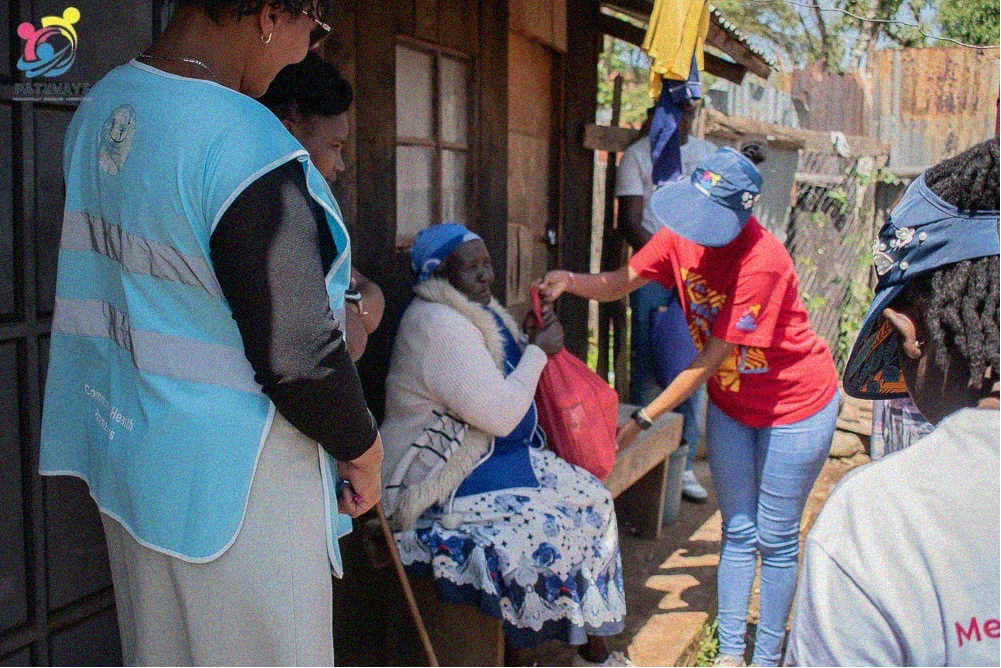CASE STUDY 1
Leveraging Community Health Promoters for Climate Response and Preparedness
Kenya

Context
Kenya experienced its worst flooding disaster in 50 years during April and May 2024 as a result of heavy rains and Cyclone Hadaya. In Kenya’s Laikipia County, the flood destroyed homes and displaced families, cutting off access to vital services. Women and girls struggled to access contraceptive services. School closures also deprived many girls of their primary sources of menstrual products and food.
Organization
Pathways Policy Institute (PPI) is a community-based non-profit organization in Nanyuki, Kenya that uses a cross-sectoral approach to tackle health and development challenges. PPI aims to use community solutions to strengthen universal health coverage and address the climate crisis.
Approach
During the floods in early 2024, PPI worked with Laikipia, Samburu, Nyeri, and Isiolo county health departments to integrate maternal and child health services into their flood response. For example, they deployed and coordinated Community Health Promoters (CHPs) to deliver routine healthcare services and facilitate medical outreach. The CHPs went house-to-house and provided short-term contraceptives to those who wanted them as well as dignity packages containing sanitary pads, menstrual health information, flour, and cooking oil.
They also provided consults on menstrual hygiene and reproductive health and linked individuals in need of healthcare services to Beyond Zero Truck, a mobile clinic providing free healthcare services, including reproductive health care. PPI is working with the Department of Health to conduct comprehensive monitoring and evaluation to assess the long-term outcomes of the crisis response.
PPI is also working to enhance climate change preparedness planning in the region. They are working with the county governments to ensure gender balance and gender inclusion in climate change committees. They are also working with communities to watchdog the use of flood relief funds and advocate for the inclusion of SRH products in preparation for future disasters.
Results to Date
Community Health Promoters visited approximately 30 households in the immediate one-month aftermath of the flood event. The integrated approach allowed for continuous access to maternal and child health services despite the crisis.
The distribution of 1,061 dignity packages and the work of CHPs ensured that women and girls had access to menstrual products and essential health information, lessening the impact of the crisis on their health and well-being.
PPI’s responsive and community-centric approach created closer links with the affected communities. This engagement fostered trust that the response was aligned with the specific needs and priorities of the community members. This, in turn, is fueling the momentum behind their community-based policy advocacy work.
Source: Key informant interviews with Lucky Kaesha and Betty Wangui
PDF Innovative Approaches to Addressing Climate Change Impacts on Sexual & Reproductive Health: Case Studies from Around the World


